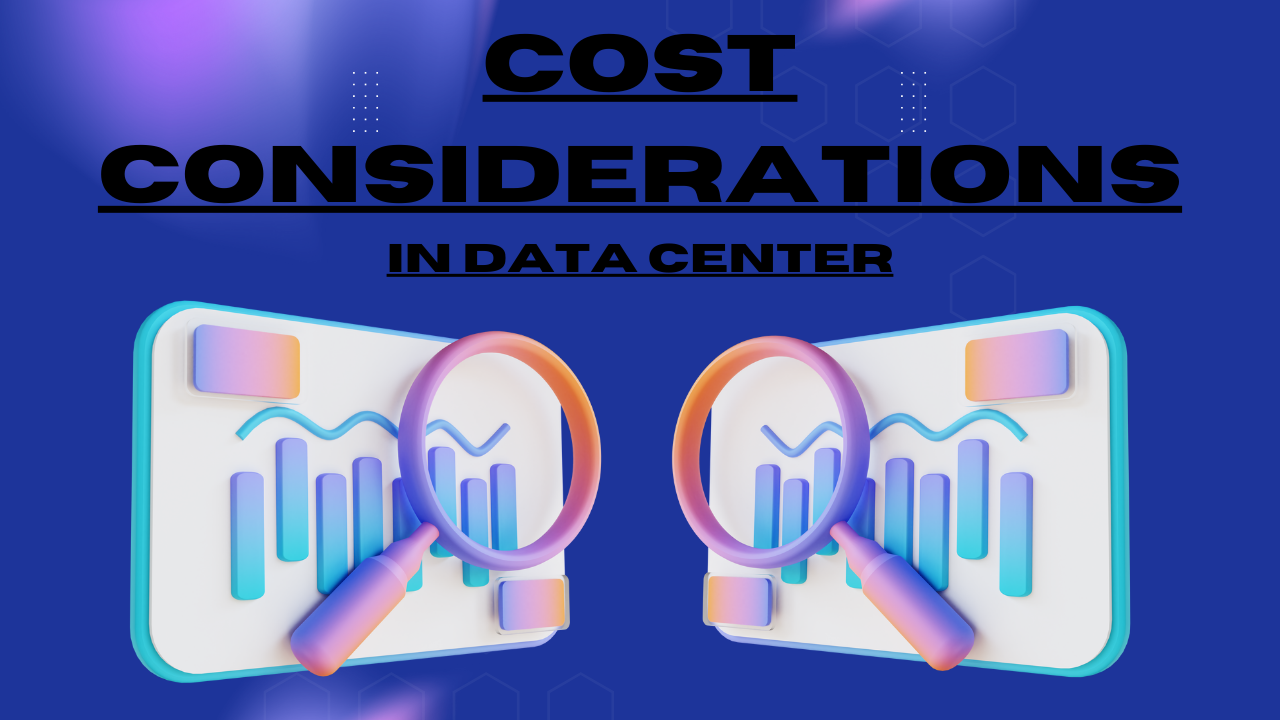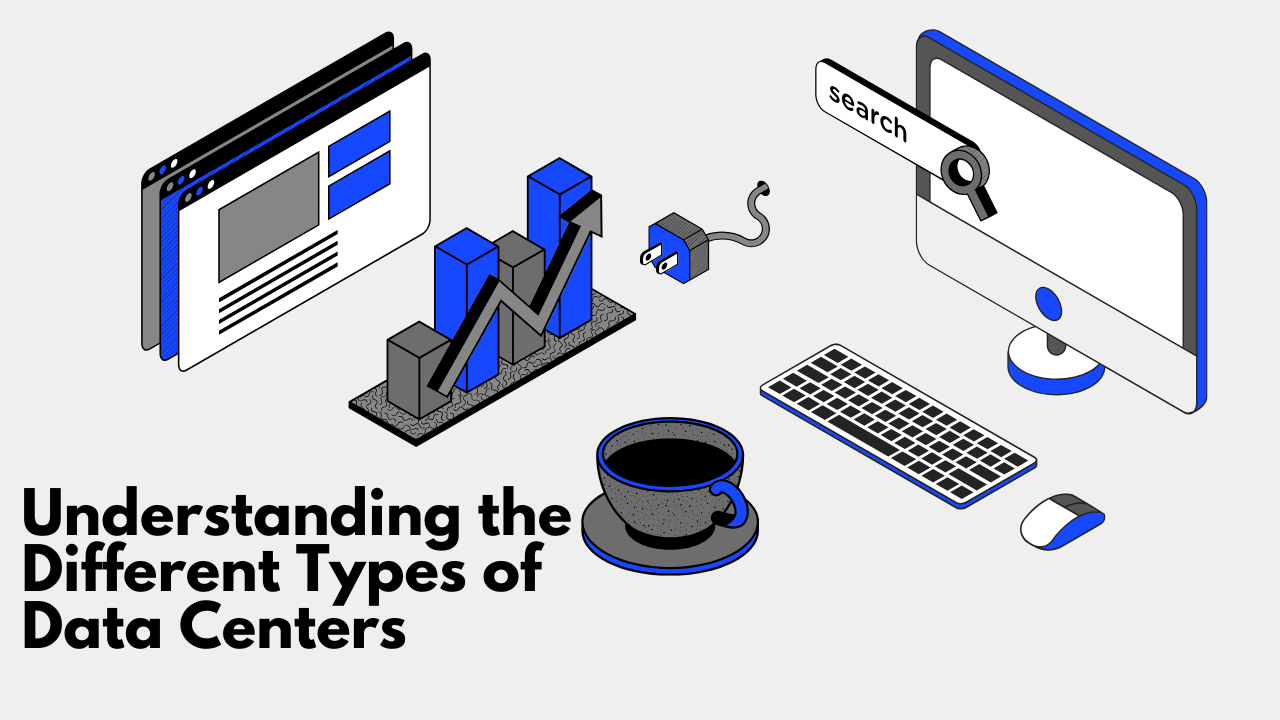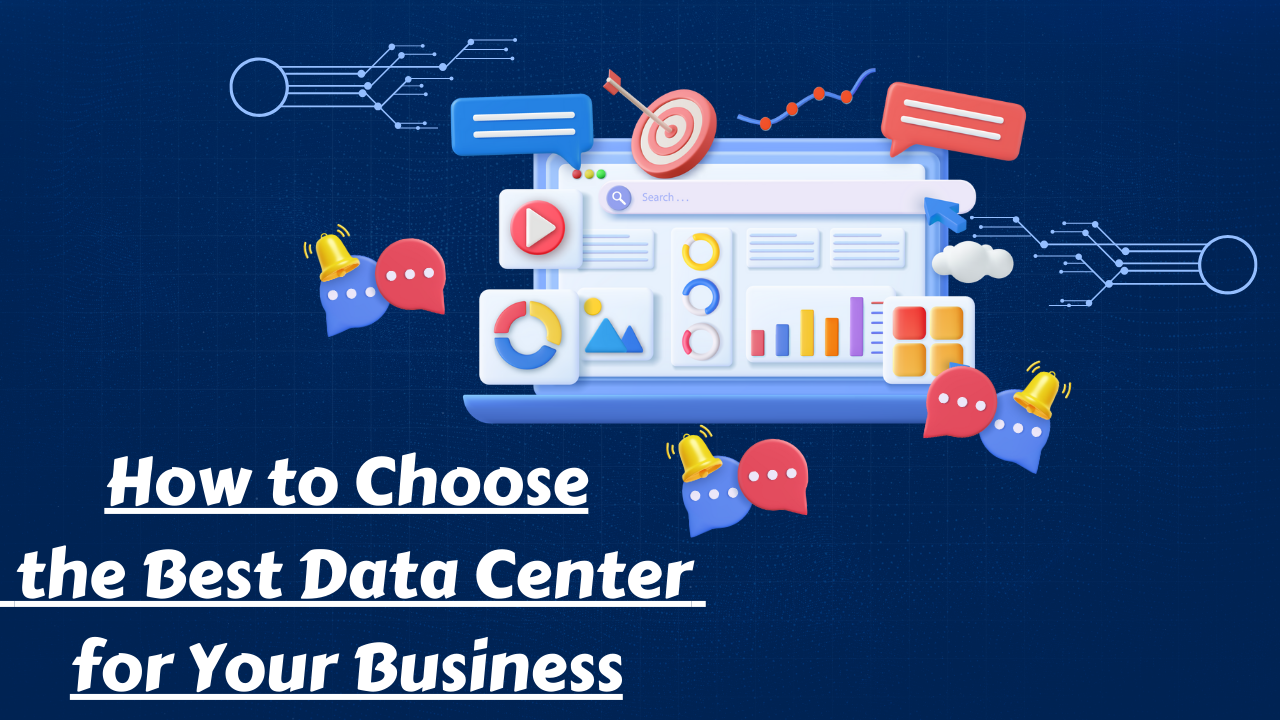In today’s digital landscape, businesses rely heavily on data centers to store, manage, and process their information. Whether you’re a small startup or a large corporation, selecting the right data center is crucial for ensuring your data’s security, availability, and performance. With numerous options available, making the best choice can be overwhelming. This article will guide you through the key factors to consider when choosing the best data center for your business, helping you make an informed decision.
Understanding Data Centers
Before diving into the selection process, it’s essential to understand what a data center is. A data center is a facility that houses computer systems, servers, and associated components, such as storage systems and networking equipment. Data centers provide the infrastructure required for various IT services, including:
- Data storage and management
- Web hosting
- Cloud computing services
- Disaster recovery solutions
The efficiency, security, and reliability of a data center can significantly impact your business operations. Therefore, selecting the right facility is paramount.
Key Factors to Consider
Location
The physical location of a data center can affect latency, compliance, and disaster recovery capabilities. When evaluating location, consider the following:
- Proximity to Your Business: A nearby data center can reduce latency and improve performance, especially for applications requiring real-time data access.
- Natural Disaster Risks: Research the geographical area for potential risks such as floods, earthquakes, or hurricanes. Selecting a location less prone to natural disasters can help ensure data availability.
- Regulatory Compliance: Depending on your industry, certain regulations may dictate where your data can be stored. Ensure the data center’s location complies with these regulations.
Security Measures
Data security is a top priority for any business, and data centers must implement robust security measures to protect your sensitive information. Consider the following aspects:
- Physical Security: Look for features such as surveillance cameras, security guards, biometric access controls, and secure entry points.
- Network Security: Ensure the data center has advanced firewalls, intrusion detection systems, and DDoS protection to safeguard against cyber threats.
- Compliance Certifications: Data centers should adhere to industry standards and certifications, such as ISO 27001, SOC 2, or PCI DSS, which demonstrate a commitment to security best practices.
Scalability and Flexibility
As your business grows, your data center needs may change. Opt for a facility that offers scalability and flexibility to accommodate future growth. Consider:
- Capacity for Expansion: Ensure the data center can support additional servers, storage, and bandwidth as your business requirements evolve.
- Service Flexibility: Look for providers that offer a range of services, such as colocation, dedicated servers, or cloud solutions, allowing you to adjust your resources based on current needs.
Reliability and Uptime Guarantees
Downtime can significantly impact your business operations, resulting in lost revenue and a damaged reputation. Evaluate the data center’s reliability by:
- Uptime Guarantees: Check the provider’s Service Level Agreements (SLAs) for uptime guarantees. A reputable data center should offer at least 99.9% uptime.
- Redundancy Measures: Ensure the facility has redundancy in power, cooling, and networking to prevent outages. This includes backup power supplies, multiple internet connections, and failover systems.
Technical Support
Access to reliable technical support is crucial for addressing issues that may arise in a data center environment. When assessing support services, consider:
- 24/7 Support Availability: Look for data centers that offer round-the-clock support, ensuring assistance is available whenever needed.
- Expertise and Responsiveness: Evaluate the provider’s response times and the expertise of their support staff. Quick and knowledgeable support can minimize downtime and resolve issues effectively.
Cost Considerations
Budget constraints are a reality for most businesses, and selecting a data center that fits within your financial parameters is essential. However, it’s crucial to evaluate the total cost of ownership rather than just the initial price. Consider:
- Pricing Models: Understand the pricing structure, including setup fees, monthly costs, and any additional charges for services or bandwidth.
- Long-Term Value: Assess the overall value of the services offered. Sometimes, paying slightly more for superior security, support, or performance can save you money in the long run by preventing costly downtime or data breaches.
Energy Efficiency and Sustainability
As environmental concerns become increasingly important, many businesses seek data centers that prioritize energy efficiency and sustainability. When evaluating options, consider:
- Energy Efficiency Certifications: Look for data centers that have certifications such as LEED (Leadership in Energy and Environmental Design) or ENERGY STAR, indicating their commitment to energy-efficient practices.
- Sustainable Practices: Inquire about the data center’s use of renewable energy sources, cooling technologies, and waste reduction strategies to minimize its environmental impact.
Interconnectivity and Network Infrastructure
The performance of your applications can depend heavily on the data center’s network infrastructure and interconnectivity options. Key factors to consider include:
- Connectivity Options: Look for data centers that offer multiple internet service providers (ISPs) to enhance redundancy and performance.
- Peering Arrangements: Consider data centers that have established peering arrangements with major networks, which can improve latency and reduce costs for data transfers.
Reputation and Reviews
A data center’s reputation can provide valuable insights into its reliability and quality of service. When researching potential providers, consider:
- Customer Reviews and Testimonials: Look for feedback from current and past clients to gauge their experiences with the provider. Reviews can reveal strengths and weaknesses that may not be apparent in marketing materials.
- Industry Recognition: Check if the data center has received any awards or certifications that demonstrate its commitment to excellence in service and operations.
Trial Period and Contract Terms
Before making a final decision, it’s wise to negotiate trial periods and review contract terms carefully. Consider:
- Trial Periods: Some data centers offer trial periods that allow you to test their services before committing long-term. This can be an excellent opportunity to assess performance and support.
- Contract Flexibility: Review the terms of the contract for flexibility in scaling services or terminating the agreement if the provider does not meet expectations.
Making the Decision
After evaluating the key factors outlined above, it’s time to make an informed decision. Here’s a step-by-step approach to help you finalize your choice:
Create a Shortlist: Based on your research, create a shortlist of potential data center providers that meet your essential criteria.
Conduct Site Visits: If possible, arrange visits to the data centers on your shortlist. This will give you a firsthand look at their facilities, security measures, and operational practices.
Engage in Discussions: Reach out to the shortlisted providers for in-depth discussions about your needs. Ask questions about their services, support, and any specific concerns you may have.
Compare Proposals: Request proposals from the data centers you’re considering. Compare the services offered, pricing, and SLAs to identify the best fit for your business.
Involve Stakeholders: Involve key stakeholders in your organization, such as IT, finance, and compliance teams, in the decision-making process to ensure all perspectives are considered.
Finalize the Agreement: Once you’ve made your decision, negotiate the final terms of the contract and ensure that all aspects of the agreement align with your business requirements.
Understanding the Different Types of Data Centers
This topic can explore the various types of data centers available, including:
- Colocation Data Centers: Discuss how these facilities allow businesses to rent space for their servers and hardware, providing benefits like enhanced security and reliable power without the need for building and maintaining a facility.
- Cloud Data Centers: Explain the differences between public, private, and hybrid cloud data centers, highlighting their scalability and flexibility.
- Edge Data Centers: Explore the concept of edge computing and how edge data centers are positioned closer to end-users to reduce latency and improve performance.
- Enterprise Data Centers: Discuss the features and benefits of data centers built and operated by large organizations for their use.
Disaster Recovery and Business Continuity in Data Centers
This topic can delve into the importance of disaster recovery (DR) and business continuity planning when selecting a data center. Key points to cover include:
DR Strategies: Explain various disaster recovery strategies, such as data replication, backup solutions, and failover systems, and how they can protect your business from data loss.
Geographic Diversity: Discuss the benefits of choosing a data center with multiple geographic locations to enhance disaster recovery capabilities.
Testing and Validation: Highlight the importance of regularly testing and validating your disaster recovery plan to ensure effectiveness in case of an emergency.
Compliance and Risk Management: Explore how data centers can help meet compliance requirements related to data protection and risk management.
Conclusion
Choosing the best data center for your business is a critical decision that can impact your operations, security, and growth potential. By carefully evaluating factors such as location, security measures, scalability, reliability, and cost, you can make an informed choice that aligns with your needs and goals. Remember that the right data center is not just a facility for storing data; it’s a strategic partner that can support your business’s success in an increasingly digital world.
As technology continues to evolve, staying informed about data center trends and advancements will also be essential for optimizing your operations. By prioritizing the selection of a data center that meets your specific needs, you’ll position your business for success and resilience in the ever-changing landscape of the digital age.
FAQs
What factors should I consider when selecting a data center?
Key factors to consider include location, security measures, scalability, reliability and uptime guarantees, technical support, cost, energy efficiency, interconnectivity options, and the provider’s reputation.
How do I assess the security measures of a data center?
Evaluate physical security features (like surveillance and access controls), network security protocols (such as firewalls and DDoS protection), and compliance certifications (like ISO 27001 and SOC 2) to gauge the facility’s commitment to data security.
What is the difference between colocation and cloud data centers?
Colocation data centers allow businesses to rent physical space for their servers and hardware, while cloud data centers provide virtualized resources over the Internet. Colocation offers more control over hardware, while cloud solutions offer scalability and flexibility.
Why is uptime important, and how can I ensure it?
Uptime is crucial because downtime can lead to revenue loss and a damaged reputation. To ensure high uptime, look for data centers that offer strong SLAs (Service Level Agreements), redundancy in power and networking, and reliable support services.
How can I ensure my data center meets compliance requirements?
Research the data center’s certifications and compliance history related to your industry. Ensure they adhere to regulations relevant to your business, such as GDPR, HIPAA, or PCI DSS, and discuss compliance practices with the provider.

